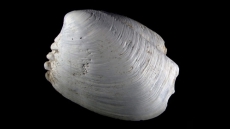'The Mare's Trap: Nature and Culture in the Kamasutra' might come as a shocker to the "moral brigade" at work in India.
The book, a re-telling of the Kamasutra by Wendy Doniger, explicates how ancient India appreciated eroticism and its progressive outlook on gender and female sexuality.
Doniger's account of the liberal outlook of Kamasutra, a third century work by Indian ascetic Vatsyayana, is a rap on the knuckles for contemporary India. Putting the "puritanical censorship" to shame, Doniger, an American academic, explores how a progressive Vatsyayana endorsed same-sex love and adultery (with some caution).
Doniger, whose first book, 'The Hindus: An Alternative History' sparked a row last year, contends in her new book that Kama (desire) is as old as Hinduism and the earliest Hindu text the Rig Veda revels in the language of pleasure and fertility.
The author also seeks to establish the Kamasutra, the world's most famous text of erotic love, as a landmark of India's secular literature. Dispelling popular notions that Kamasutra is all about improbable positions, she argues that the book is about the art of living, about finding a partner, maintaining power in a marriage and committing adultery.
Doniger positions Kamasutra as a feminist text rather than a book offering "mattress-quaking sex styles. She puts forth her arguments for it being a text for women rather than men.
"A woman should study the Kamasutra and its subsidiary arts before she reaches the prime of her youth and she should continue when she has been given away, if her husband wishes it," the book says.
According to Doniger, Vatsyayana's view of the female orgasm is "far more subtle than views that prevailed in Europe until very recently." Doniger says that Vatsyayana knew about the G-Spot, the female pleasure point named after the 20th century German gynecologist Ernst Graefenberg, and squarely put the blame on British scholar Richard Burton's misleading translation of Kamasutra for keeping it a secret from the western world.

Vatsyayana also takes an extraordinary stand that the sexual act is for pleasure and not to produce children, which is the basic premise of the institution of marriage in India.
Doniger says that despite being a highly-sophisticated book, Kamasutra is not getting the attention it deserves - sometimes taken as a matter of national shame rather than pride - and in the rest of the world it is a source of amused amazement.
Doniger also throws light on how Kamasutra has heavily borrowed from Kautilya's Arthashastra, a book on statecraft. She also describes how both the books mostly differ with Manu's Dharmashastra, which coined castes and defined women as inferior to men.
To drive home her point, the scholar points out that Vatsyayana was a strong advocate of women's sexual pleasure and Kamasutra assumes a kind of sexual freedom for women that would have appalled Manu.
In a surprisingly modern take, Vatsyayana suggests that a woman must leave her husband if she is not getting pleasure and even defends adultery. However, Manu advocates that a virtuous wife should constantly serve her husband like a God, even if he behaves badly and adultery is a legal crime, according to him.
Vatsyayana finds it natural for a woman getting attracted to men: "A woman desires any attractive man she sees, and, in the same way, a man desires a woman." Vatsyayana even advises men on where to meet married women.

Doniger also refers to Vatsyayana's non-judgmental attitude on same-sex love even more daring in his day than it is in ours now. Anyone listening?
The Mare's Trap: Nature and Culture in the Kamasutra
Publisher: Speaking Tiger
Price: Rs.399; Pages: 182





